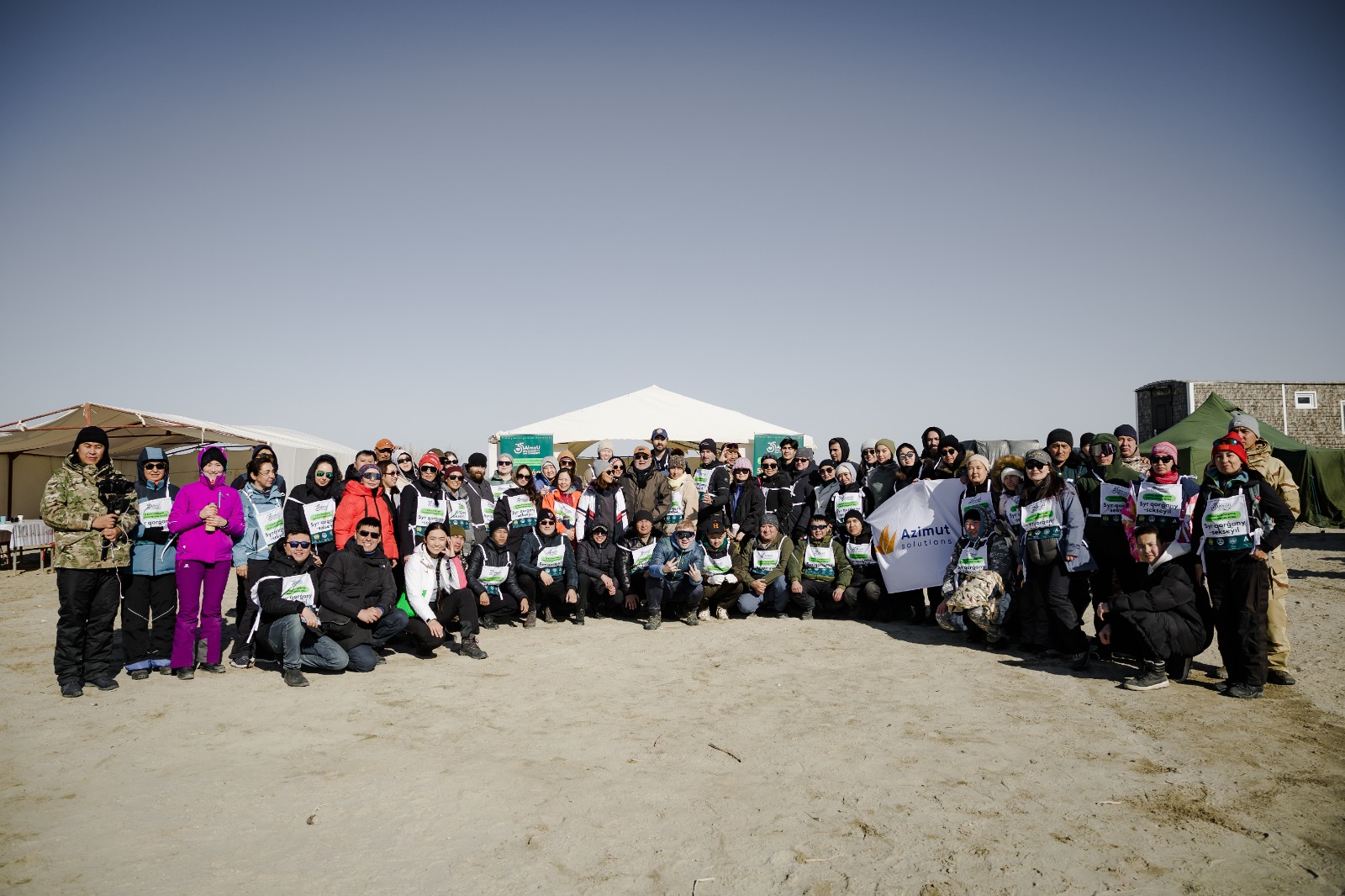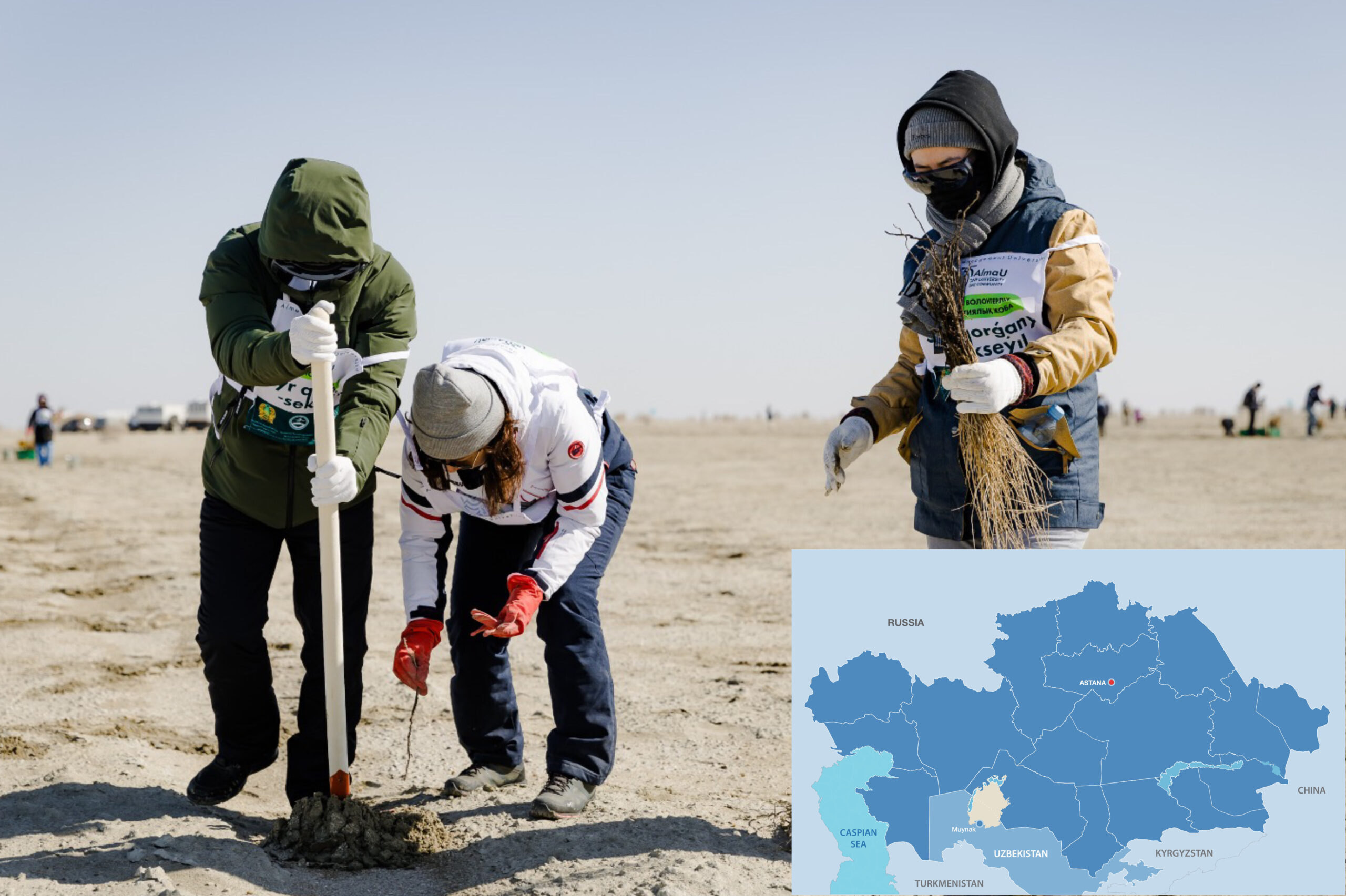ASTANA – The first eco-volunteer initiative, featuring the planting of saxaul seedlings on the Aral Sea’s bottom, took place in the Kyzylorda Region on March 1-3, reported the university’s press service.
The event was organized by the Almaty Management University (AlmaU) to revitalize the region’s ecosystem and protect it from the aftermath of the Aral Sea ecological catastrophe. Approximately 80 volunteers from Almaty, Talgar, Astana, Kyzylorda, Tashkent, and the United States participated in the project. Their efforts saw the successful planting of 5,100 saxaul seedlings on the Aral Sea’s bottom.
Over three days, the volunteers covered an impressive distance of 1,030 kilometers. During the project, participants visited the Korkyt-ata memorial complex and discussed with Maria Zadneprovskaya, an expert from the International Fund for Saving the Aral Sea, and Sergey Azimov, a Kazakh film director.

Photo credit: kz-reporter.com
The group also watched “Zhoktau,” a film depicting the challenges faced by the Aral Sea.
“The Aral Sea cannot be revived. But the improvement of our country, our native village, and the enhancement of the environmental situation are within our power. That is why I participate in the project as a volunteer,” said Azimov.
He underscored the pivotal role of such initiatives in instilling national environmental consciousness.
Saxaul, a resilient tree planted to combat dust storms and salt inflation, has been a long-standing focus under state programs since 2021. More than a million hectares of saxaul should be planted by the end of 2025.
The director-general of the National Forest, Breeding, and Seed Production Center, Alibi Gaziz, highlighted that saxaul was planted on 545,000 hectares of land from 2021 to 2023.
Gaziz described saxaul as a sacred tree capable of holding four tons of sand and salt with its robust roots.
“Our country has the largest number of saxaul trees. They can be found in the Kyzylorda Region, in Moynaq, Sozak, and even along the shores of Lake Balkhash. Generally, saxaul trees come in two varieties: black and white. For this particular project, black saxaul was chosen for planting. Remarkably, within just four years, it will yield seeds,” he said.
Gulnar Kurenkeeva, the rector of AlmaU, expressed the university’s commitment to sustainable development goals and annual environmental projects.
“Attracting the maximum number of people to environmental issues is our priority. Following these values, we decided to support this volunteer environmental project,” she added.


